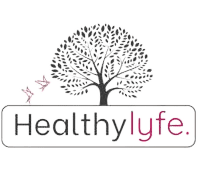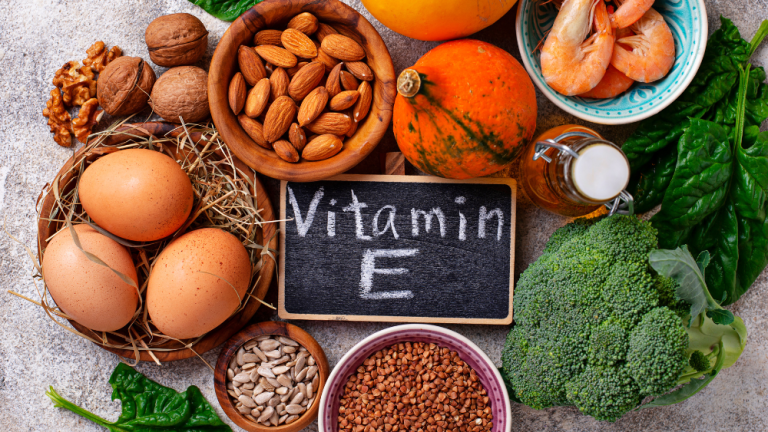Discover what Vitamin E is and how it’s used in your daily life. From its role in your body to its many applications, learn everything you need to know about this essential nutrient!
Introduction
Ever wondered about Vitamin E and how it impacts your health? You’re not alone! With its impressive range of benefits and applications, Vitamin E has become a staple in health discussions, skincare routines, and dietary supplements. But what exactly is Vitamin E, and how does it work its magic? Let’s dive into this fascinating nutrient and uncover its myriad uses and benefits.
What is Vitamin E [1]
The Basics of Vitamin E
Vitamin E isn’t just a single entity but a family of compounds known as tocopherols and tocotrienols. They come in various forms, but the most common and beneficial one in human health is alpha-tocopherol. This fat-soluble vitamin acts as a potent antioxidant, helping to neutralize free radicals that can damage cells.
Key Points About Vitamin E:
- Type: Fat-soluble vitamin
- Forms: Tocopherols and tocotrienols
- Most Common Form: Alpha-tocopherol

Why It’s Important
Vitamin E is crucial for a variety of bodily functions, including immune response and skin health. It helps maintain healthy skin and eyes, supports the immune system, and even has a role in gene expression.
How It Works
Vitamin E primarily functions as an antioxidant. This means it helps combat oxidative stress in the body. Oxidative stress is a state where there are more free radicals than antioxidants, leading to potential cellular damage. By neutralizing these free radicals, Vitamin E helps to protect your cells from damage.
How Is Vitamin E Used
Dietary Sources of Vitamin E
One of the easiest ways to ensure you’re getting enough Vitamin E is through your diet. Here’s a list of some Vitamin E-rich foods:
- Nuts and Seeds: Almonds, sunflower seeds, and hazelnuts
- Green Leafy Vegetables: Spinach, kale, and broccoli
- Vegetable Oils: Sunflower oil, safflower oil, and olive oil
- Fortified Foods: Some cereals and juices
Vitamin E Supplements
For those who find it challenging to get enough Vitamin E through their diet, supplements are a viable option. They come in various forms, including:
- Capsules
- Softgels
- Tablets
- Liquid Drops

Skincare and Vitamin E
Vitamin E is renowned for its skincare benefits. It’s often found in moisturizers, serums, and other topical products. Here’s how Vitamin E benefits your skin:
- Hydration: Helps to lock in moisture, keeping your skin hydrated.
- Anti-aging: Reduces the appearance of fine lines and wrinkles by combating oxidative stress.
- Healing: Promotes the healing of scars and blemishes.
Hair Care and Vitamin E
Did you know Vitamin E can work wonders for your hair, too? Here’s how:
- Moisturizing: Adds shine and moisture to your hair, making it look healthier.
- Scalp Health: Improves circulation to the scalp, promoting hair growth.
- Damage Repair: Helps repair damage from styling and environmental factors.
The Benefits of Vitamin E
Immune System Support
Vitamin E strengthens the immune system by enhancing the function of immune cells. It’s particularly useful in protecting against infections and diseases.
Heart Health
Some studies suggest that Vitamin E may play a role in heart health by preventing oxidative damage to cells, which can contribute to cardiovascular disease.
Eye Health
Vitamin E’s antioxidant properties also benefit eye health, potentially lowering the risk of age-related macular degeneration (AMD).
Cognitive Function
Research indicates that Vitamin E might help protect against cognitive decline and Alzheimer’s disease, though more studies are needed to fully understand its impact.

FAQs
What is Vitamin E?
Vitamin E is a fat-soluble antioxidant that helps protect cells from oxidative damage. It exists in eight different forms, with alpha-tocopherol being the most active form in humans.
What are the main health benefits of Vitamin E?
Vitamin E supports immune function, protects cells from oxidative stress, promotes skin health, improves eye health, and helps with the maintenance of healthy skin and hair.
How does Vitamin E function as an antioxidant?
Vitamin E neutralizes free radicals—unstable molecules that can cause cell damage. By doing so, it helps prevent oxidative stress, which is linked to aging and various chronic diseases like heart disease and cancer.
What are the best natural sources of Vitamin E?
Vitamin E is found in foods such as nuts (like almonds and hazelnuts), seeds (sunflower seeds), vegetable oils (sunflower oil, wheat germ oil), leafy greens (spinach, Swiss chard), and fortified cereals.
How much Vitamin E should I consume daily?
The recommended daily intake of Vitamin E for adults is 15 milligrams (22.4 IU) per day. Pregnant and breastfeeding women may need slightly higher amounts, and the needs can vary based on age and specific health conditions.
What happens if I don’t get enough Vitamin E?
A deficiency in Vitamin E can lead to symptoms such as muscle weakness, vision problems, impaired immune function, and nerve damage. Severe deficiency is rare, but people with fat malabsorption disorders or certain genetic conditions are at higher risk.
Can Vitamin E help with skin health?
Yes! Vitamin E is widely used in skincare for its anti-inflammatory and antioxidant properties. It can help reduce skin damage, prevent signs of aging, and aid in wound healing. Topical Vitamin E is often used in creams and oils for moisturizing and reducing scars.
Can Vitamin E prevent or treat wrinkles and signs of aging?
Vitamin E’s antioxidant properties can help neutralize free radicals, reducing the visible signs of aging. When applied topically, it can hydrate the skin, improving its appearance and elasticity, though its effects are often best combined with other skincare ingredients.
Does Vitamin E improve hair health?
Yes, Vitamin E can promote hair growth and reduce hair damage. Its antioxidant properties help improve blood circulation to the scalp, which supports hair follicles, and it can also reduce oxidative stress on hair follicles, contributing to healthier hair.
Can Vitamin E help with heart health?
Some studies suggest that Vitamin E may help reduce the risk of heart disease by preventing the oxidation of LDL cholesterol, which contributes to the development of plaque in arteries. However, more research is needed to confirm its effectiveness as a heart-health supplement.
Can Vitamin E boost the immune system?
Yes! Vitamin E plays a crucial role in immune function by enhancing the production of immune cells and protecting them from damage. Adequate Vitamin E intake may help reduce the risk of infections, particularly in older adults.
Is Vitamin E useful in treating or preventing eye diseases?
Vitamin E is believed to help prevent cataracts and age-related macular degeneration (AMD) due to its antioxidant properties. Some studies suggest that Vitamin E, in combination with other vitamins and nutrients, may slow the progression of these eye conditions.
Can I get enough Vitamin E from food alone?
Yes, most people can meet their Vitamin E needs through a balanced diet rich in nuts, seeds, oils, and leafy greens. However, people with certain health conditions or dietary restrictions may need to take supplements.
Is it safe to take Vitamin E supplements?
Vitamin E supplements are generally safe when taken in recommended amounts. However, high doses (more than 1,000 mg or 1,500 IU per day) can cause side effects such as bleeding problems due to its blood-thinning properties. Always consult a healthcare provider before starting supplements.
What are the side effects of taking too much Vitamin E?
Excessive Vitamin E intake can lead to toxicity, causing nausea, diarrhea, fatigue, and more serious issues like bleeding or impaired blood clotting. Long-term high doses may increase the risk of stroke.
Can Vitamin E help with inflammation?
Yes, Vitamin E’s anti-inflammatory properties can help reduce inflammation in the body. This may be particularly beneficial for conditions like arthritis, skin inflammation, and other chronic inflammatory diseases.
Does Vitamin E help with muscle weakness?
In people with a deficiency, Vitamin E supplementation can improve muscle weakness and coordination by protecting nerve cells and muscle tissue from oxidative damage. It is sometimes used as part of treatment for certain neurodegenerative conditions.
Can Vitamin E help with blood sugar levels?
Some studies suggest that Vitamin E may improve insulin sensitivity and help regulate blood sugar levels, potentially benefiting people with diabetes. However, more research is needed to determine the full scope of its effect on blood sugar management.
Is Vitamin E safe during pregnancy?
Vitamin E is considered safe during pregnancy when taken in the recommended amounts (15 mg per day). However, excessive intake (more than 1,000 mg daily) should be avoided, as it may pose risks such as bleeding complications.
Can Vitamin E interact with other medications?
Yes, Vitamin E can interact with certain medications, particularly blood thinners (like warfarin) and cholesterol-lowering drugs. It may also interfere with chemotherapy treatments. Always consult a healthcare provider before combining Vitamin E supplements with prescription medications.y5
Conclusion
So, what is Vitamin E and how is it used? It’s much more than just a vitamin—it’s a multifaceted nutrient with significant roles in protecting your health, from enhancing skin and hair to supporting your immune system and heart. By incorporating Vitamin E into your diet, skincare, and wellness routines, you’re not just maintaining your health but actively boosting it. Whether through delicious foods, supplements, or topical applications, Vitamin E’s benefits are truly wide-reaching.
Embrace the power of Vitamin E, and watch as it helps transform your health and well-being. Here’s to vibrant health and glowing skin! 🌟
By healthylyfe


